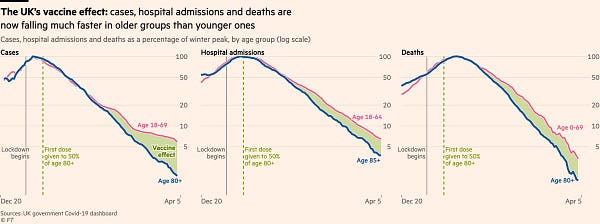This week’s toy: a monkey playing a computer game with its brain. If true, I’m not sure whether this is good (respond to text messages instantly) or horrible (we’re all gonna become cyborgs.) Edition No. 41 of this newsletter is here - it’s April 11, 2021.
The Big Idea
One of the biggest challenges of adding someone to a team is determining what they will do, how they will get up to speed, and how to make them successful by creating some scaffolding for their success.

Documenting your own process
The first step to helping a new team member is to document what you do. It seems simple, and if you’ve been doing a role for an extended period of time, you might not have ever written down what you do.
Think of it this way: if you were not available to do the process, how would it get done? You’d need to know the context of what you are doing, the components to get started, the steps to take, and the result you’re trying to achieve. But simply knowing about a process is not usually enough to know how to troubleshoot it when things go differently than expected.
Knowing the context of your process is key. Who is the customer for this process? What is the business reason for completing the process? Adding some detail for your new team member is important. But not too much detail.
Enough detail to get started
A process works best when it has enough detail for execution and doesn’t have all of the possible detail. It’s comforting to tell someone everything they need to know to do a process, but not necessary. It’s much better to give the person what they need to get started, and then to answer questions that arise as the person gains knowledge.
The goal of handing off a process is not to document everything related to that process. It’s to allow that process to go forward as written, and allow for improvement at the same time.
Adjusting as needed
Steve Blank has famously written “no business plan survives first contact with a customer.” There’s a corollary for handing off a process to a new person. It’s likely you’ll need to answer some questions and make some changes so they can embrace the process and make it their own.
What’s the takeaway? When you hand off a process, there’s a bit of pre-work that needs to be done to provide context. Your process will be better when it gets tested by handing it off to another person.
A Thread from This Week
Twitter is an amazing source of long-form writing, and it’s easy to miss the threads people are talking about.
This week’s thread: Covid Vaccine efforts and the data around vaccines and variants in Europe.


Links for Reading and Sharing
These are links that caught my eye.
1/ Looking back at failure isn’t always conclusive - This story about Andrew Wilkinson and his efforts to create a To-do app highlights the challenge of learning from your mistakes. It’s easy (maybe) to look back and see decisions you could have made. It’s really hard to see the relevant decisions during the process that turn out to be meaningful.
2/ Making teams better with trust - How do you build safety on your team? Collaborate. Encourage Dissent. Learn from failure. David Burkus discusses these items and more in an engaging video on building teamwork.
3/ Watch out, Tesla - Instead of a Cybertruck, I think lots of people will want an electric version of the vehicle they drive already. For Chevy, that means building an electric Silverado. If “normal” consumers start driving electric trucks, this is good for the market overall.
On the Reading/Watching List
Up All Night is the story of Ted Turner and the birth of CNN - the first 24 hour news network. Always-on news is the norm now - and it wasn’t always the case.
Thanks to a very friendly founder, I might have to watch Eurovision this year. If you haven’t heard of it, Eurovision is an annual pop song contest. You’ll get a sampling from the video below.
What to do next
Hit reply if you’ve got links to share, data stories, or want to say hello.
I’m grateful you read this far. Thank you. If you found this useful, consider sharing with a friend.
Want more essays? Read on Data Operations or other writings at gregmeyer.com.
The next big thing always starts out being dismissed as a “toy.” - Chris Dixon




